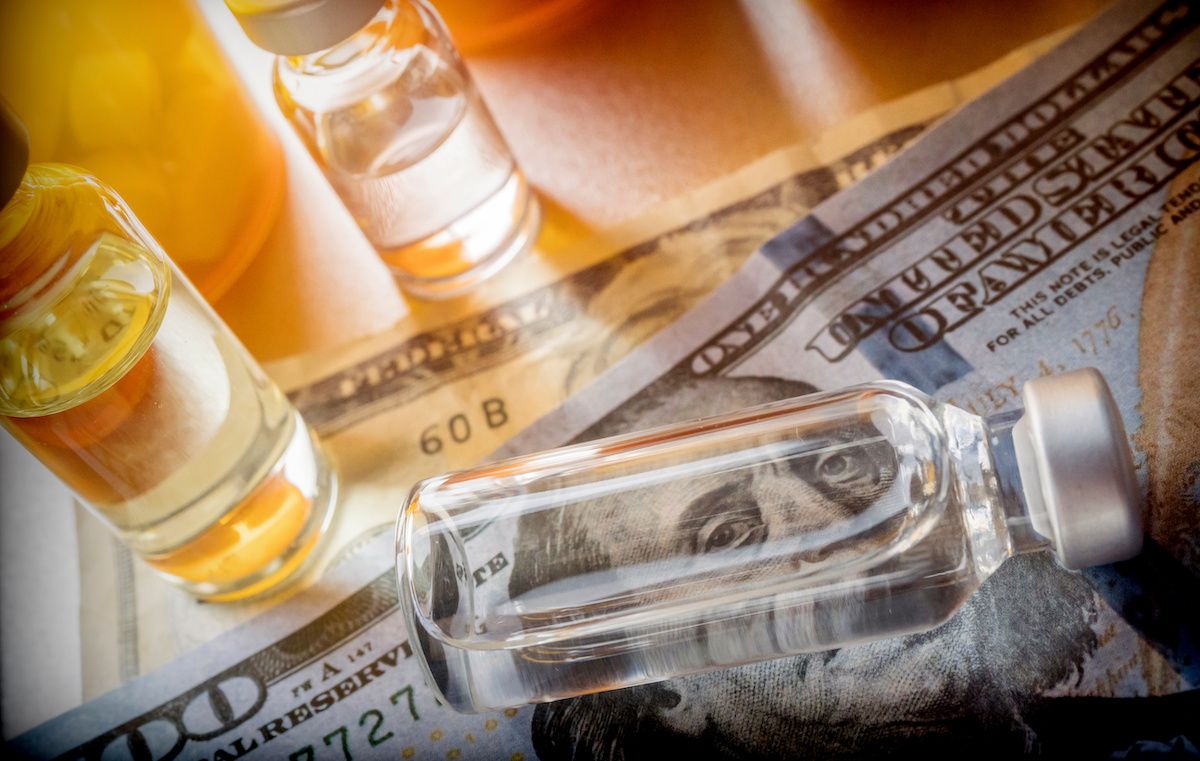- Bone Health
- Immunology
- Hematology
- Respiratory
- Dermatology
- Diabetes
- Gastroenterology
- Neurology
- Oncology
- Ophthalmology
- Rare Disease
- Rheumatology
Billions in Health Care Savings Realized Through Early Generic, Biosimilar Settlements
Patent settlements accelerate the entry of generics and biosimilars, saving the health care system $422.9 billion and enhancing drug accessibility.
Accelerated entry of generic and biosimilar drugs into the US market, often facilitated by settlement agreements, has resulted in an estimated $422.9 billion in health care system savings, according to a recent comprehensive analysis.1 The research, conducted by the IQVIA Institute for Human Data Science on behalf of the Association for Accessible Medicines (AAM), examined the impact of these agreements on drug availability and cost containment.
Patent settlements accelerate the entry of generics and biosimilars, saving the health care system $422.9 billion and enhancing drug accessibility. | Image credit: digicomphoto - stock.adobe.com

“The ability for generic and biosimilar manufacturers to procompetitively settle with brand-name drug manufacturers creates significant savings and efficiencies and brings lower-cost medicines to patients years earlier,” said John Murphy III, president and CEO of AAM, in a statement.2 “Efforts to severely limit patent settlements will hurt patients, cost billions of dollars, and exacerbate industry sustainability concerns in the generic medicines marketplace.”
The study focused on molecules with first generic or biosimilar launches between 2014 and the third quarter of 2024.1 Researchers utilized the IQVIA SMART U.S. Launch and Regulatory Insights module to identify molecules and their initial launch dates. Litigation and settlement details were gathered from various sources, including the Ark Patent Intelligence Database, US Securities and Exchange Commission filings, company announcements, and court decisions. To determine the "would-have-been" generic entry date without a settlement, patent expiration information was cross-referenced using the Orange Book database, Purple Book database, FDA approval letters, and the Ark Patent Intelligence database.
Of the 288 molecules assessed, 84 had settlements that resulted in early or timely generic and biosimilar entry after 2013. The findings indicated a significant acceleration of market entry, with launches occurring an average 64 months (approximately 5 years) before the original patent expiry for molecules with settlements. Specifically, 29% of the studied molecules saw generic or biosimilar entry between 1 and 5 years prior to patent expiration, and an impressive 30% experienced entry 5 to 10 years ahead of schedule.
One example highlighted in the report was teriflunomide, a multiple sclerosis drug. A settlement reached in 2017 with multiple generic abbreviated new drug application filers led to the launch of generics a remarkable 11 years before its anticipated patent expiry. This early entry alone translated into substantial savings, with the health care system saving an estimated $1.1 billion in 2023.
Across all molecules studied, generics and biosimilars that entered the market early due to settlements accrued an average of $5.0 billion in savings per molecule. Interestingly, the analysis did not find a strong correlation between the magnitude of health care savings and how early generic or biosimilar entry occurred.
Although the study underscored the immense benefits of settlements, it also shed light on instances of delayed generic or biosimilar entry despite such agreements. Four molecules with settlements experienced launch delays, primarily attributed to protracted FDA approval timelines or supply shortages for complex products. For instance, drugs like Welchol (colesevelam), Integrilin (eptifibatide), Aggrastat (tirofiban), and Istodax (romidepsin) saw settlements accelerate potential generic entry, but regulatory hurdles or supply chain issues ultimately slowed their market introduction. This emphasizes that although patent disputes may be resolved, other factors can still impede the swift availability of affordable medicines.
The report's findings carry significant implications for the future of the biosimilar and generic industries. The consistent pattern of earlier market entry through settlement agreements suggests that these strategies will continue to be crucial in fostering competition and increasing drug accessibility. The substantial health care savings realized underscore the economic advantages of promoting such agreements. However, the report also highlighted the need for streamlined regulatory processes and proactive measures to address potential supply chain issues, particularly for complex generic and biosimilar products.
Moving forward, the AAM predicted that the industry, in collaboration with regulators, will likely focus on optimizing the interplay between legal settlements and efficient approval pathways to maximize the benefits of earlier generic and biosimilar market penetration, thereby enhancing affordability and access to essential medicines.
References
1. Assessment of the impact of settlements: analysis results. AAM. June 3, 2025. Accessed June 3, 2025. https://accessiblemeds.org/wp-content/uploads/2025/06/202506-AAM-Impact-of-Patent-Settlements-IQVIA-Study.pdf
2. Generic and biosimilar patent settlements save $423 billion. Press release. AAM; June 3, 2025. Accessed June 3, 2025.
Newsletter
Where clinical, regulatory, and economic perspectives converge—sign up for Center for Biosimilars® emails to get expert insights on emerging treatment paradigms, biosimilar policy, and real-world outcomes that shape patient care.
